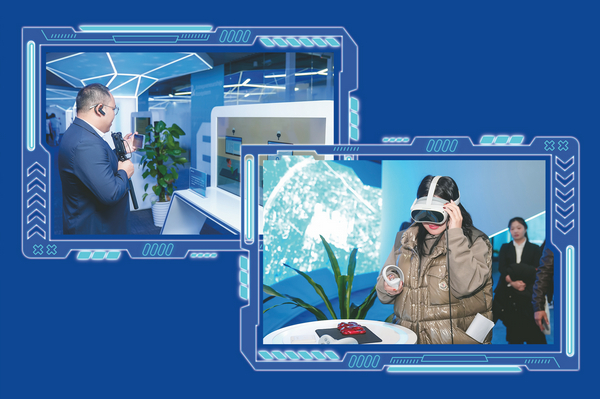Young innovators forge global ties
Global youth gather in Beijing to forge paths in economic cooperation, sustainability, and tackling global challenges through entrepreneurship.


What happens when young minds from across the world come together? They spark new ideas, drive change, and build connections that transcend borders.
The International Alliance of Young Entrepreneurs Associations Work Meeting, also known as the Roundtable on International Young Entrepreneurs Economic and Trade Cooperation, was held from Dec 5 to 6 in Beijing.
Jointly organized by the China International Youth Exchange Center (CIYEC) and the International Alliance of Young Entrepreneurs Associations (IAYEA), the conference attracted nearly 100 participants. These included young entrepreneurs from over 20 countries and regions, as well as representatives from foreign embassies in China, chambers of commerce, universities, and international and regional organizations.
Deborah Bottreau, secretary-general of the ASEAN Young Entrepreneurs Council, introduced IAYEA as a global movement for change driven by the energy, innovation, and resilience of young leaders under the age of 45.
"We believe that entrepreneurship is not only an engine for economic growth but also a catalyst for social responsibility, inclusivity, and innovation," she said.

Xu Xiao, president of the All-China Youth Federation, addressed the event's theme, "Overcoming Challenges by Win-win Cooperation", in his opening speech.
"This is not only the theme of this conference but also a pressing issue of our time that we all face," he said. "It urgently requires the youth around the world to shoulder the responsibilities of our era and contribute their wisdom and strength to solving global challenges."
One of the key outcomes of the event was the review and approval of the Global South Young Entrepreneurs Partnership Initiative, which focused on four areas: advocating for sustainable development and global green initiatives, removing trade barriers and advancing trade liberalization and facilitation, ensuring the seamless and stable operation of global industrial and supply chains, and fostering the development of the ocean industry and economy and safeguarding marine resources.
These themes were explored in four parallel meetings, each attended by around 20 young representatives who discussed the challenges and opportunities within their respective fields.
William Zarit, chairman of the Global Investment Council from the US, emphasized the contemporary significance of international cooperation on green, low-carbon development.
He highlighted the contributions of Tesla's solar roof products to green energy, BYD's battery technology in green transportation, and Germany's passive houses, which reduce building energy consumption through excellent insulation materials.
Lee Kee Foong, deputy secretary-general of the ASEAN Young Entrepreneurs Council from Malaysia, focused on further cooperation between China and Malaysia in hydrogen energy.
He noted that hydrogen-powered buses developed by Chinese companies are already in use in Malaysia and stressed the need for a hydrogen production and processing plant.
Regarding cooperation with industrial and supply chains, the conference highlighted the importance of establishing a shared information base for business projects worldwide.




































